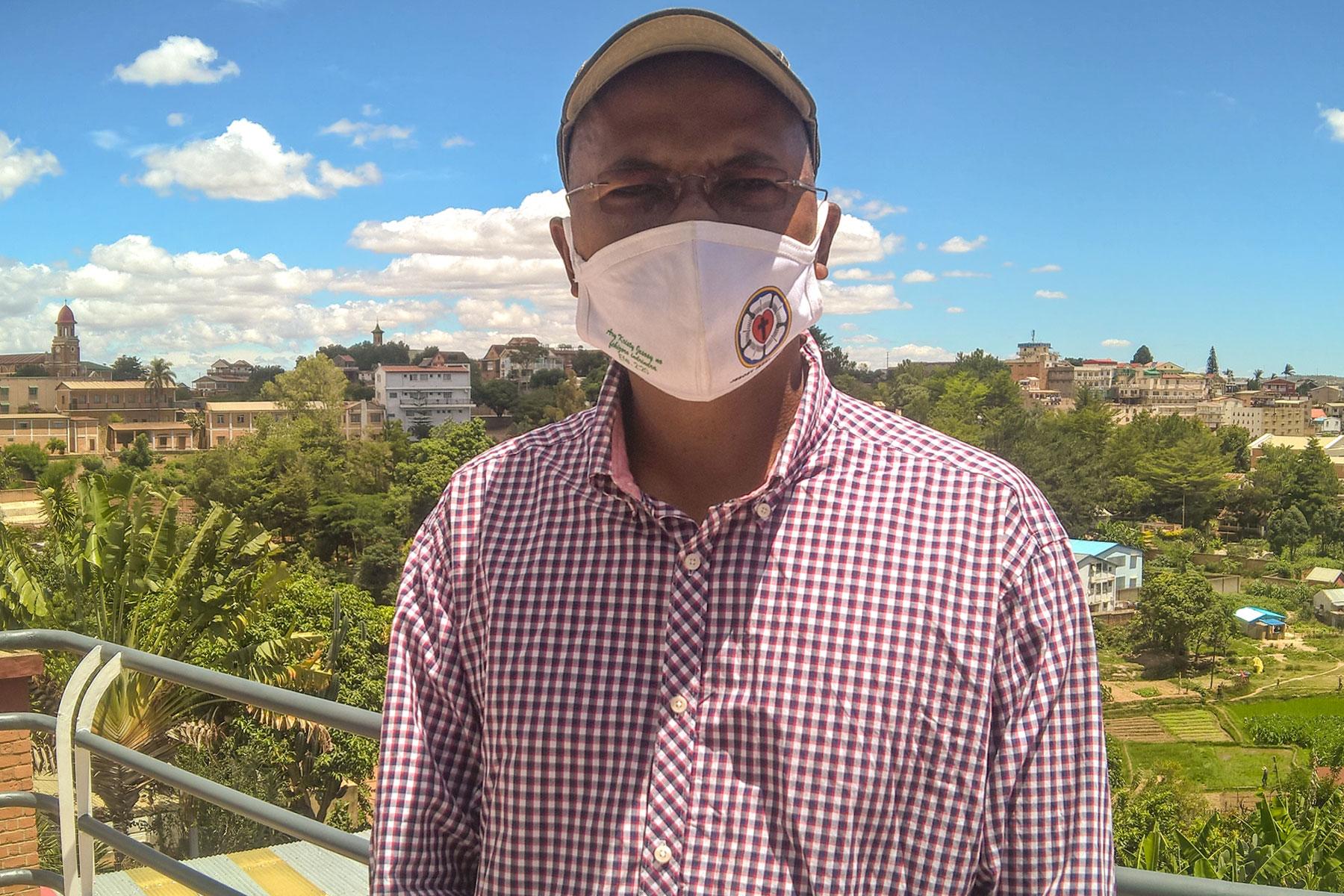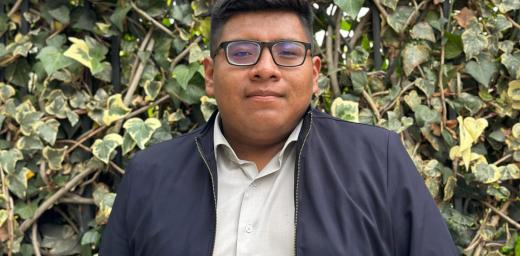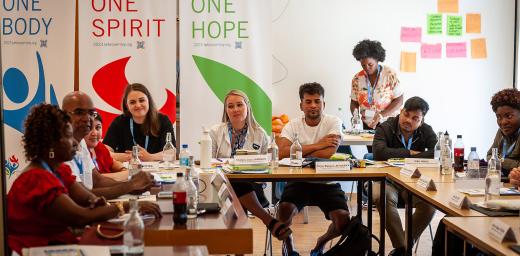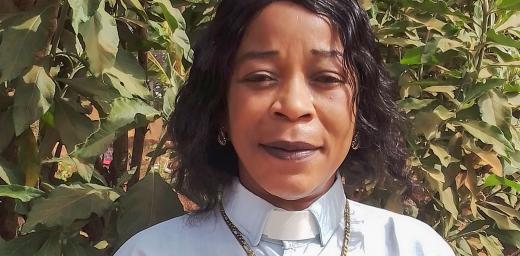Diaconal practices that transform, heal and reconcile

Dr Rivosoa Nasoloniaina. Photo: Private
Research on the church’s role in reducing maternal and infant mortality
LWF scholarship holder Dr Rivosoa Nasoloniaina explains how his PhD studies promote the Malagasy Lutheran Church’s diaconal work and the commitment to SDG 3 for women’s health.
Madagascar has a goal of reducing its maternal and infant mortality rate from 353 to the global target of at least fewer than 70 per 100,000 live births. How can the Malagasy Lutheran Church (MLC) health ministry contribute to that goal and to the country’s implementation of its commitments to the Unite Nations Sustainable Development Goals?
I am doctoral fellow of the VID Specialized University in Norway, conducting PhD research on how traditional birth attendants (TBAs) can complement medical practitioners to provide access to reproductive health-care services and reduce maternal and infant mortality. My case study focuses on the professional practice of a Lutheran diaconal project called Remafi, which provides services contributing to the achievement of SDG3, through trained TBAs in rural Madagascar. My objective is to understand the significance of this diaconal ministry for achieving the SDG 3 on “good health and wellbeing” for women.
Culture versus behavioral change
According to the Ministry of Health, home deliveries performed mostly by TBAs significantly contribute to this unacceptable high death rate. Research shows that after unsuccessful TBA-assisted home deliveries, many expectant mothers arrive too late at health centers, with complicated obstetrics likely to result in fatal consequences.
Numerous interventions by the state or civil society organizations to change people’s habits have not led to the desired sustainable results. Whether it is the enforcement of a new law prohibiting unqualified matrons from undertaking home deliveries to offers of substantial in-kind support as incentive for expectant women to give birth at health centers, none has brought any changes. The weight of tradition and culture is palpable and hinders efforts toward behavioral change.
My research was triggered by the Public Health Inspector’s findings in the rural commune of Anjamanga, in the central district of Antanifotsy. The district health unit noted that since 2016, three years after the Remafi project began there, the number of deliveries at health centers has been increasing. Yet, in other rural areas where Remafi is not present, many expectant mothers remain faithful to home deliveries that are practiced by unskilled caregivers, which is a major cause for maternal and infant deaths
Biblical teachings and capacity building
Thanks to this innovative game-changer called diakonia, an integral part of Jesus’ mission and of the church, now entrusted to Remafi, several households have experienced a healthy behavioral change. Early findings of my research work in 2020 show that Remafi’s goal to reduce mother and infant mortality started with the recruitment of a few Lutheran TBAs. The ripple effect of biblical teachings and iterative capacity building, made them more aware of their responsibility of ensuring that home deliveries should not risk the lives of pregnant women and their infants.
Indeed, Remafi has succeeded in transforming three target groups simultaneously: TBAs, new mothers and medical staff. The TBAs are now sensitizing and accompanying new mothers to give birth at health centers, and households and medical staff welcome TBAs as co-workers. God willing, such results are likely to advance relevant knowledge to the church, health technicians, civil society and researchers aiming at bringing holistic transformation to achieve SDGs in the Malagasy community-based settings and beyond.
Remafi’s professional practice takes into consideration the foremost concern of diakonia for marginalized people—the practice of expressing Christian love as a source of essential change. I see MLC’s ministry through Remafi as an expression of diaconal spirituality that is “‘oriented by the mystery of transformation and of the significance of what apparently is insignificant.’” It is about seeing “‘the presence of God in everyday life and especially in situations where people struggle for life and dignity.’” (LWF 2009: Diakonia in Context - Transformation, Reconciliation, Empowerment)
Remafi’s professional practice takes into consideration the foremost concern of diakonia for marginalized people—the practice of expressing Christian love as a source of essential change.
In my scholarship application, MLC demonstrated the need to specialize in diakonia not only as theoretical but above all as a “practical tool” for targeted holistic development. When I complete my research, I hope it can be a resource for teaching diakonia at the MLC Martin Luther University. The LWF scholarship makes it possible for my research to benefit my church, other churches in the Lutheran communion and the community at large.
Finally, the learnings have the potential to create another basis for improving the worldview of diakonia as part of Jesus’ healing deeds for the sick, the suffering, the downtrodden and marginalized (Matthew 9:36).
LWF scholarship holder Dr Rivosoa Nasoloniaina studied medicine in Antananarivo and qualified as a general practitioner in 2001. He holds two Master’s degree—in public health from the University of Aix-Marseille in France (2004), and in diakonia and Christian practice from the VID Specialized University in Norway (2016). He has served as a doctor in health institutions of the Malagasy Lutheran Church for more than 15 years, including Lutheran clinics in remote areas that are predominantly Muslim.
The Scholarships for Theology and Diakonia program has been part of LWF’s engagement with its member churches since the 1950s. The financial grants awarded annually facilitate degree and diploma courses in theology and different areas of diaconal work for students and church workers.





